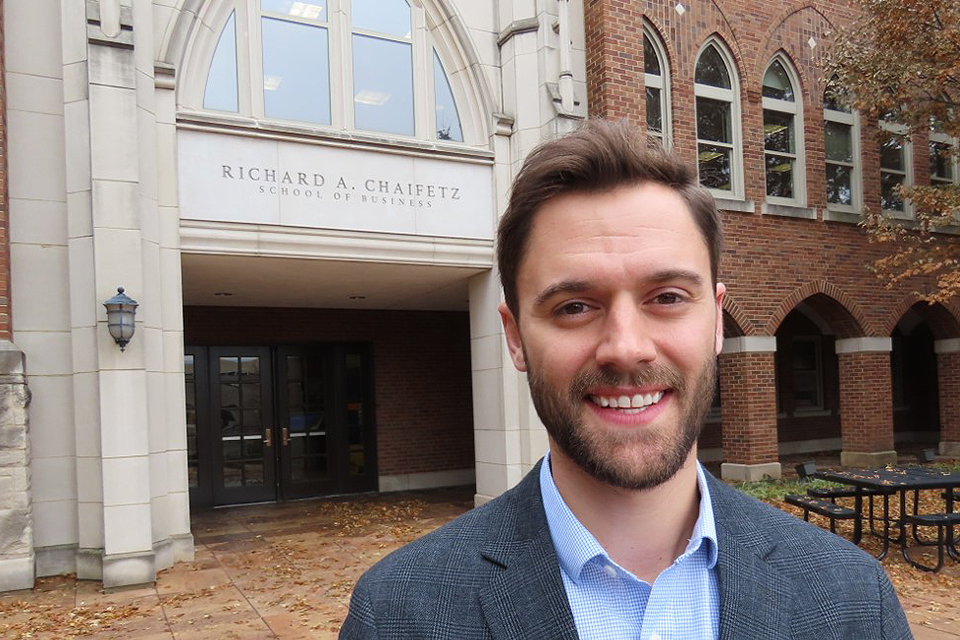What the Number of Cars on Retailers’ Parking Lots Tells the People Assessing Market Strength
Wall Street analysts put too much weight in how crowded their local parking lots are in forecasting the success of a business, according to new joint research by Saint Louis University and the University of Kentucky.
The research by Marcus Painter, Ph.D., an assistant professor of finance at SLU's Richard A. Chaifetz School of Business, and William Gerken, Ph.D., an associate professor of finance at the Gatton College of Business and Economics at University of Kentucky, used satellite imagery to compare statistics about the number of cars parked on retail lots in a variety of cities and evaluate the effect of geographically diverse information on sell-side research analysts’ individual and consensus forecasts.
Painter said the core finding that people are influenced by local information has broad implications. For instance, how a store performs in St. Louis could be different from other places, which could skew forecasts.
“As an example, it is important for a St. Louis based firm to know where their analysts or investors are located, because these market participants could be receiving different signals about the firm based on how its stores or factories are performing in that area,” Painter said.
In the rapidly changing world of retail and the decline of brick-and-mortar stores, Painter shared how these research figures play into the way retailers are doing business and planning strategies for the future.
“First, our measure is really capturing the overall impression an analyst may have about local performance.,” Painter said. “We measure this using traffic to local stores because that's the data we have, but it's also likely capturing things like what an analyst might hear from friends and family about a company. So the results apply broadly to industries outside of retail.“
“Secondly, our empirical strategy accounts for things like rising e-commerce for these companies,” Painter added. “We compare analysts who are forecasting the same firm but from different locations, so they will have similar access to a retail firm's online performance, but will have varying information from brick and mortar performance.“
Painter added that a key takeaway from the research is that the wisdom of the crowd can be a powerful forecasting tool, but can lead to inaccurate estimates when individuals don't bring forth diverse information sets.
Founded in 1818, Saint Louis University is one of the nation’s oldest and most prestigious Catholic institutions. Rooted in Jesuit values and its pioneering history as the first university west of the Mississippi River, SLU offers nearly 13,000 students a rigorous, transformative education of the whole person. At the core of the University’s diverse community of scholars is SLU’s service-focused mission, which challenges and prepares students to make the world a better, more just place.


















